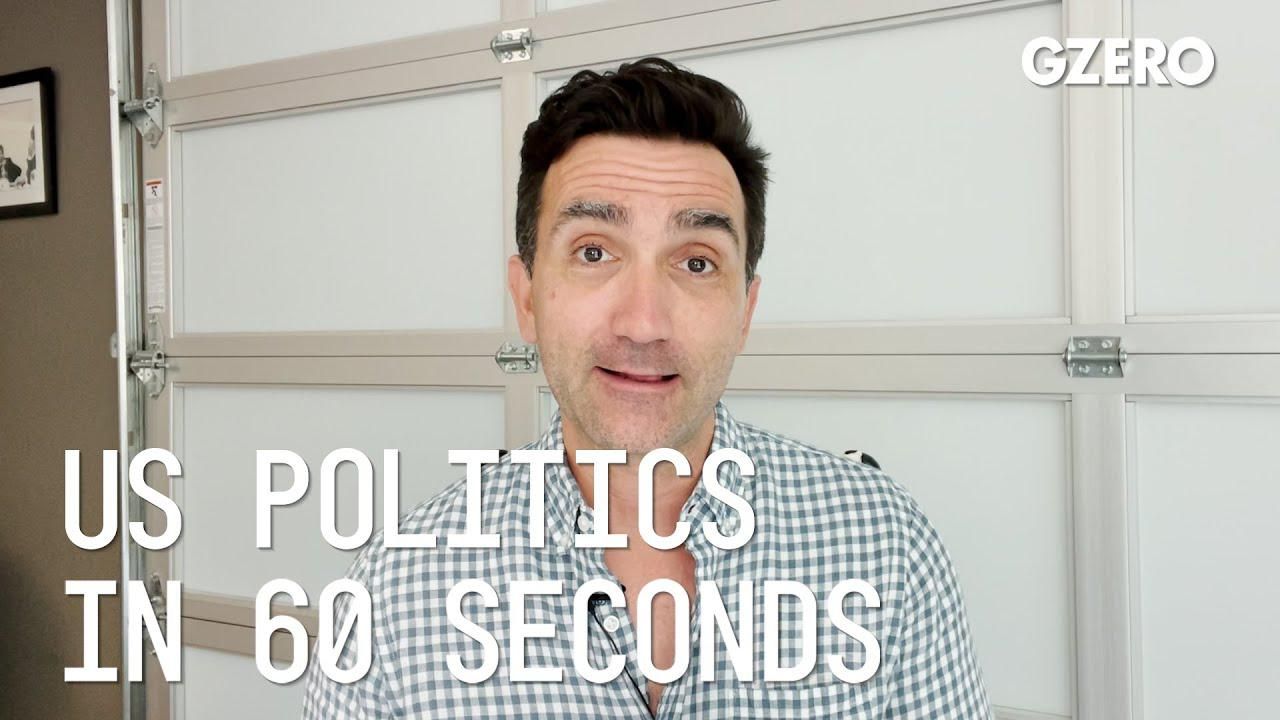US Politics In 60 Seconds
Partisan wrangling likely to block January 6 commission in Congress

Partisan Wrangling Likely To Block Jan 6 Commission in Congress | US Politics In :60 | GZERO Media

Get insights on the latest news in US politics from Jon Lieber, head of Eurasia Group's coverage of political and policy developments in Washington:
What is the status of the proposed January 6 commission to investigate the Capitol assault?
The January 6 commission was an idea originally from House Speaker Nancy Pelosi, who proposed a commission modeled after the very successful 9/11 commission, which looked at intelligence failures leading up to the terrorist attacks on the Twin Towers in Manhattan on September 11th, 2001. Pelosi wanted to form a bipartisan commission to look at the Capitol insurrection on January 6th. Why it happened, how it happened, what the security failures were that led to it happening, who's responsible, and how to prevent it from ever happening again? And initially, Republicans were fairly cold to this idea because Pelosi had proposed a commission that was stacked in favor of the Democrats, with more democratic members than Republicans. House Republican minority leader, Kevin McCarthy, empowered representative John Katko from New York to go ahead and negotiate the commission. And eventually he came up with a compromised proposal that would have been evenly balanced between Republicans and Democrats, had subpoena power, and been able to produce a report by the end of the year.
Republicans, however, decided in the meantime that this commission was not good news for them. They began to be concerned that the Democrats would use this as a partisan opportunity to link them to the insurgence that took over the Capitol building, who were largely both in favor of Donald Trump, and also inspired by him to go and charge the Capitol. And the Republicans just don't want to be talking about this anymore. They want to move on and talk about Biden's policy agenda, where they think they're on much more stable political ground.
McCarthy now opposes the commission, which passed the House this week with about 35 Republican members voting for it, members who thought they were operating in good faith and typically want to be part of the problem solvers group in the House of Representatives. But it's unlikely to go anywhere in the Senate because minority leader McConnell opposes the commission, and probably represents the views of enough Republicans to successfully filibuster this thing.
So this isn't going to go anywhere. There may be congressional investigations into what happened on January 6th, but those investigations in the grand tradition of the hearings into Benghazi, and other purely partisan issues are going to be led by Democrats with Republicans. Maybe they participate, maybe they don't, but this is turning into a very partisan issue, as many other issues are in the US today.
As expected, the Supreme Court struck down the bulk of Donald Trump's sweeping “Liberation Day” tariffs as illegal … and almost nothing changed.
Chris, an Army veteran, started his Walmart journey over 25 years ago as an hourly associate. Today, he manages a Distribution Center and serves as a mentor, helping others navigate their own paths to success. At Walmart, associates have the opportunity to take advantage of the pathways, perks, and pay that come with the job — with or without a college degree. In fact, more than 75% of Walmart management started as hourly associates. Learn more about how over 130,000 associates were promoted into roles of greater responsibility and higher pay in FY25.
Somewhere in the Donbas region, Ukrainian soldier Artem Bondarenko says he hasn’t slept through the night in months as he defends Eastern Ukraine.
In the latest episode of Vladimir Putin and Xi Jinping's hit wellness podcast This Authoritarian Life, we learn how positive communication patterns can break negative cycles in our relationships -- especially our relationships with Iran, Syria, Venezuela, and Cuba. #PUPPETREGIME